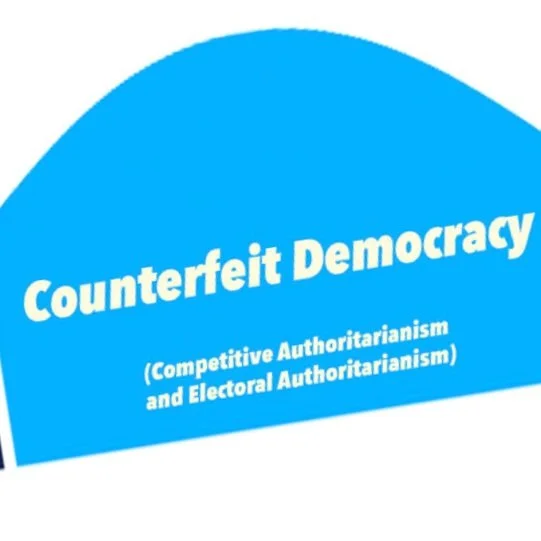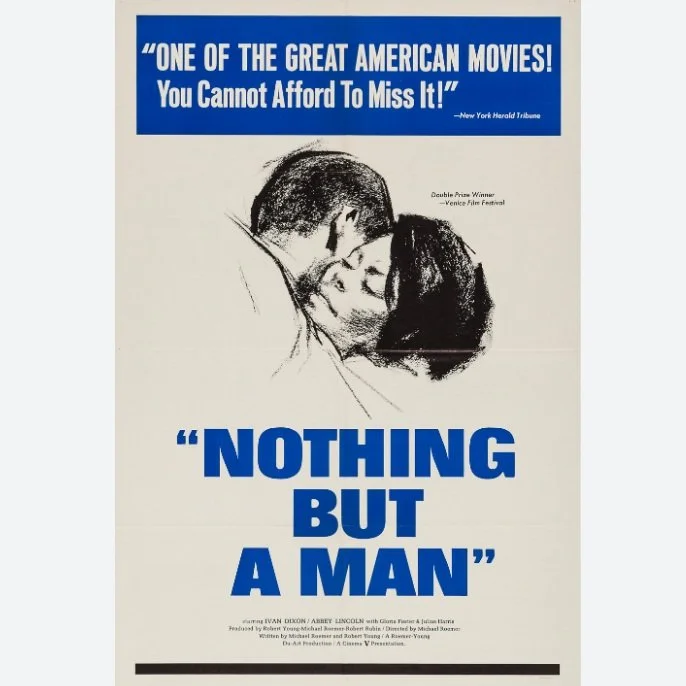The Madness of March
Didn’t watch a minute of the Super Bowl, not even the Kendrick Lamar part. Didn’t care about the college football playoff championship. Was out of the country for the World Series and can’t quite remember right now who won the NBA finals or the Stanley Cup.
But boy, do I love March Madness.
Maybe it’s because I live in a college town, where college basketball is religion, even when the reigning deity has lost some of its divine powers. Maybe it’s because I am in the center of a region that has few professional teams and has historically dominated the sport of college basketball for decades.
Or maybe it’s because March Madness, the NCAA college basketball tournament, is the one sports event that everyone can feel a part of. . . .
Aging Is Grad School
This is a short sample of an article by the novelist Anne Lamott in the Washington Post.
I turned 70 today, a young age for an older person to be, but it is the oldest I have ever been by a long shot. It has been well over six decades since I learned in arithmetic how to carry the one, and the rest has sped by like microfiche.
One big juicy, messy, hard, joyful, quiet life. That’s what my 70 years have bequeathed me.
In my teens, already drinking and drugging, I didn’t expect to see 21, and at 21, out of control, I didn’t expect to see 30. At 30, I had published three books but, as a sober friend put it, was deteriorating faster than I could lower my standards.
Then at 32, I got clean and sober, the miracle of my life from which all other blessings flow. . . .
The Democrats Roll Over and Play Dead
. . . . I wish, these days, I was party to another party.
I want to support a political movement that vigorously fights for what I believe in. I want to support a political party that understands the grave threats facing this country and is willing to do whatever is needed to meet those threats. I want to place my faith in an organization that is angry and determined and full of passionate intensity.
That is not the Democratic Party.
Ever since November’s election, and particularly since the inauguration, the Democratic Party has been confused about how to respond to the assault on our democracy orchestrated by Donald Trump and implemented by Elon Musk. The party has followed, for the most part, the advice from long-time Democratic strategist James Carville to roll over and play dead and wait for the Republicans to really screw it up. . . .
Favorite Films by Decade: the 1970s
My assignment: Choose a movie from each decade of my life that has had the most personal impact, starting with the 1940s and ending in the 2020s.
We’ve already covered the 1940s, ‘50s and ‘60s, and continue today with the 1970s, which saw the rise of a “New Hollywood,” the emergence of a host of young directors and general recognition by critics and historians as one of the most creative decades in the history of American film.
These aren’t necessarily the “best” movies of the decade or the most innovative; they represent the films that resonated most with me, either from my initial viewing when they were released or when I first engaged with them in subsequent years.
Some rules to keep these lists doable: 1) Only one film each decade by a particular director; 2) only English-language movies, due mainly to gaps in my knowledge about foreign-language films except for Italian neo-realism, French New Wave and the works of Akira Kurosawa, and 3) no TV miniseries.
I’m sure I’ve missed some great movies that should be on these lists. Yet this still leaves hundreds, if not thousands, of movies to choose from.
Let the arguments continue.
The 1970s:
“The Godfather” (1972)
This is my favorite American movie. . . .
On the need for a Tom Lehrer
We could use a Tom Lehrer—probably the cleverest composer of satirical political songs this country has produced—right about now.
One not having, to date, arrived, perhaps we might at least revisit the work of Tom Lehrer, himself, who will turn 97 next month.
He was, you may recall, a Ph.D. student in mathematics at Harvard, who recorded a few albums in the 1950s and 1960s. Lehrer wrote the songs solo, sang the songs solo, and mostly accompanied them with some lively solo piano—which made for a particularly tight words-music-performance fit.
His songs were wont to skewer just about everything in sight, but with a special emphasis on American policy in those days when, while the US government professed to be on the side of democracy, it often took it too far . . . .
What I did, what I wish I’d done
Few people reach their mid-70s without any regrets. Fortunately, I don’t often think about roads not followed. I’m generally happy with most of my decisions. And I know I wouldn’t have the life and the family and friends that I have now if I had taken other paths.
But in thinking about this, I can see that two major regrets are tied to loss and heartache.
I wish I had spent more time with my mother (and helping to care for her) before she died in 1991 at the age of 64. She had a long, progressive neurological disease. My father and my three siblings, especially my younger sister, helped care for her as much as we could.
But we all had spouses and young children in addition to jobs, so finding the time to take care of mom was not easy. She died when I was 38; I was a busy and sometimes overwhelmed mother to young twins . . .
Whitewashing Words
Recent news coverage has focused on the chaotic decisions of the Trump Administration. Tariffs imposed on Mexico and Canada, then paused for four weeks, then threatened again a day later. Federal workers fired in droves, given hours to clean out their desks, then asked in some cases to come back. Comedic portrayals of Elon Musk, wild-eyed, wielding a chain saw in preparation for obliterating yet another federal agency.
Beneath the surface of this helter-skelter story line, however, lies a far darker, sustained and relentless rush by Donald Trump to exact revenge, purge opponents, silence critics, and impose authoritarian controls. He’s replaced multiple levels of the FBI hierarchy, the military and the Justice Department; deserted allies; threatened the news media; stripped $400 million in funding from a single university; silenced his own party, and divided Democrats.
Nothing, however, is more sinister than the administration’s systematic and spreading efforts to whitewash words and phrases off websites, documents and other federal communication. . . .
This piece first appeared on Jerry Lanson’s Substack: “From the Grass Roots.”
Trump’s “Speak English” Order Explained—in Spanish
Melvis Acosta, although he is not a member of Our Generation, played a crucial role in helping us set up this website. We are proud to post a video here Acosta wrote and reported for Mother Jones—on President Trump’s executive order that, the President says, makes English the official language of the United States. You’ll find Acosta’s story here.
Acosta writes: “In the executive order, Trump called the action a way to “promote unity” and “cultivate a shared American culture,” but critics disagree. “The Congressional Hispanic Caucus responded to the executive order on X, formerly Twitter, by saying that the country “has never had an official language” and that the order was an “attack on our diversity”—and also that the tens of millions of Americans who speak other languages aren’t “any less American” for it.
“67.8 million Americans, to be exact. . . .
Acosta’s story on Trump’s order is, of course, in Spanish (with English subtitles).
Click here for Melvis Acosta’s video—in Spanish, with English subtitles.
The virus, five years on
On March 13, 2020, five years ago, the U.S. government declared a nationwide emergency because of a new viral disease starting to spread across the country. The virus was called severe acute respiratory syndrome coronavirus 2 or SARS-CoV-2. The disease was called COVID-19, the number for the year in which it was discovered.
Most of us just called it Covid, and it has changed our lives like perhaps nothing else in our memory.
It is up there with what had been perhaps the defining moment for our generation, the assassination of President John F. Kennedy. It is there with the attacks of 9/11. It is, like them, a before-and-after moment, an axis, where almost nothing was as it previously had been.
Covid altered the world, transformed our country and particularly changed our generation. According to the most recent statistics, nearly 25 percent of those who died in this country from Covid—a quarter of a million individuals—were from our generation. . . .
The Future Is Now
. . . . Twenty years ago, I worked in arts administration and philanthropy in San Francisco while creating disability-inflected videos and essays. I married my husband and rekindled a childhood love of Shetland ponies. With equine in tow, we moved to Vermont in 2010.
Seven years ago, I retired from running the Flynn Center in Burlington and served two terms in the Vermont House of Representatives. Writing and media projects continue, along with exercise and daily chores at the barn. I am steeped in the realities of aging.
In each of these decades, optimism raged during boom times as well as despair in downturns. While political, demographic and environmental forecasts appear dystopian, I am buoyed by the grass-roots resistance and resiliency experienced in my lifetime.
“counterfeit democracy”
The political scientist Brian Klaas wrote an essay considering what it might mean for Donald Trump to turn the United States into an authoritarian country more than a year ago. We believe this excerpt provides a useful framework for our fears. We encourage you to read the full piece and consider subscribing to Prof. Klaas’ Substack.
….What many people picture when they imagine a dictatorship—tanks on every corner, the total abolition of elections, and systematic mass killing—is less likely in the United States in the short-term precisely because America already has a comparatively robust democratic system, which is not usually the case when democracy dies. So, what [might Trump do]?
To understand the risks of modern authoritarianism, you must first understand modern democracy. Many people wrongly think of democracy as a binary—a country is either democratic or it’s not—instead of as a system of governance that exists along a spectrum. . . .
Favorite Films By Decade: the 1960s
My assignment: Choose a movie from each decade of my life that has had the most personal impact, starting with the 1940s and ending in the 2020s.
We’ve already covered the 1940s and the 1950s and continue today with the 1960s. These aren’t necessarily the “best” movies of the decade or the most innovative; they represent the films that resonated most with me, either from my initial viewing when they were released or when I first engaged with them in subsequent years.
Some rules to keep these lists doable: 1) Only one film each decade by a particular director; 2) only English-language movies, due mainly to gaps in my knowledge about foreign-language films except for Italian neo-realism, French New Wave and the works of Akira Kurosawa, and 3) no TV miniseries.
I’m sure I’ve missed some great movies that should be on these lists. Yet this still leaves hundreds, if not thousands, of movies to choose from.
Let the arguments continue. . . .
1960s:
“Nothing But A Man” (1964) . . .
Life is Safer
Might I suggest that we briefly interrupt our horror at what the Trump-Musk gang are doing to our country to focus on one undeniably good thing that has happened over the course of our lifetimes.
Life has continued to grow safer.
Yes, you can still be hit by a car or fall victim to a pandemic.
And the bellicose, neo-fascist alliance-smashers now at the helm of the ship of state—and their anti-science cronies—may very well succeed in reversing some of the progress I am about to recount.
But that progress has been real.
I have made use of GPT-4o to locate most of the statistics that demonstrate that. . . .
An Open Letter to Trump Supporters
This piece first appeared on Jerry Lanson’s Substack: “From the Grass Roots.” We invite you to share this with Republican friends and family.
I’m a Democrat, and a liberal to boot. But I bet we can agree on some things: That our country needs a stable economy. That it needs decent medical care and coverage. That we need to treat our veterans with respect. And that we need at least enough of a government to keep us safe, warn us of approaching storms, and help care for our kids and aging parents.
There’s mounting evidence the Trump Administration is breaking down safeguards in all these areas – and fast. So I’m writing to ask for help in convincing your GOP representatives to tap the brakes even as they (and you) press forward with the perceived need to shake things up.
Let me ask some questions to make my point:
1) Do you believe tariffs are going to lower prices?
The Trump Administration this week imposed and then lifted 25 percent tariffs on most products arriving from our two strongest trading partners –Mexico and Canada. At least for four weeks. These chaotic actions have caused a stock market rollercoaster ride that’s mostly pointed sharply downhill. . . .
Why are the streets so quiet?
Where are the demonstrations, the protests, the angry outbursts, the furious gatherings, the outraged marches? Where are the acts of civil disobedience?
Didn’t the disgraceful performance at the Oval Office the other day finally make something click? Didn’t the bizarre 90-minute speech to Congress, full of lies and craziness, do it? Haven’t we finally realized that our democracy is being stolen, our privacy is being ransacked, our national reputation is being ravaged, our judges are being intimidated, our American soul is being sold and … pretty much nothing?
Well, some of our reps dressed in pink for the speech, and when one of them was escorted out of the chamber they angrily … held up paddles. And some of us decided the other day that to express our outrage, we wouldn’t shop at WalMart or Amazon. That’ll show ‘em!
Look, I didn’t buy anything during the economic boycott. My only economic activity was I ate lunch with a friend at a locally owned place and paid in cash, my (very) little thumbing of my nose at the rapacious corporate oligarchy that had eliminated DEI practices. . . .
In defense of honorable
My late mother, the former Carmela Casullo, whose family came from a dirt-poor southern Italian town in Puglia, instilled in me her sense of fairness with one word: honorable.
“That wouldn’t be honorable,” she’d say. Or: “You have to do what’s honorable.”
Even though I only was in grammar school, I knew that the word came fraught with more meaning than mere “right” or “wrong.”
In Italian, it’s ‘Onorevole’ (‘Own-oh-RAY-vo-lay’), one of the highest compliments, meaning among other things: just, principled, respectable.
Funny how her simple code for living has stayed with me for more than seven decades.
Funny, too, how I thought of it again after our supposed president shamelessly, traitorously—and, of course, dishonorably—stabbed the president of Ukraine in the back . . . .
Trump So Far, in Verse
When Donald Trump first took office, in 2016, I felt depressed and defeated. On that inauguration day, I began posting a series of opinion-driven quatrains on Facebook.
On day 2, still unable to climb out of my funk, I wrote another, and then another, and another, eventually writing 365 doggerels for every day of Trump's first year in office (plus one for the anniversary). I published all of them eventually in a book, “Humpty Trumpty Hit A Brick Wall: Donald J. Trump's First White House Year in Verse.”
Now, once again with Trump back in the White House, I'm writing a daily poem—call it doggerel, as that's what these are—on the new D. C. administration. I didn't think I'd do the same this dreary time around but decided, okay, I'll write just one in (dis)honor of the first day.
I did so and then couldn't stop. . . .
Click here for the doggerels
‘A Midnight Global Health Massacre’
So read the headline in The Bulwark after the Trump administration eviscerated the US Agency for International Development.
Other massive cuts are on the horizon: Threats to eliminate two-thirds of EPA staffing, half of Social Security staffing, perhaps the entire Department of Education. Taken as a whole, it’s all starting to look like a bloodless coup, driven by one man who lied his way back into the White House and another elected by absolutely no one. Non-violent or not, the assault on our democracy is real, brutal and spreading rapidly.
The crippling of USAID topped the cruelty index. The Supreme Court helped the administration carve out 2,000 more jobs late at night on a glide path that The New York Times reported ultimately will leave the agency with 290 jobs of an original 10,000. The administration froze 10,000 USAID and state department contracts and grants in their tracks, ranging from funds for the President’s Emergency Plan for AIDS Relief to funds for urban rescue teams who rush to countries struck by devastating earthquakes.
The numbers are big. But big numbers too often leave us with a shrug and a sigh, before we move on to something else. Data doesn’t punch us in the gut. For that we need stories and powerful images that move us. . . .
(This is a story from Jerry Lanson’s Substack blog: “From the Grass Roots.” It’s free and has a single goal: To share stories from across the country about those who’ve been hurt by, or are pushing back against, the chaotic and often cruel policies of this administration. We encourage you to subscribe.)
Favorite Films By Decade: the 1950s
Long-time arts editor, film critic and historian Bruce Dancis gives us his highly informed takes, decade by decade, on those films that have had the most impact.
Here is the second in the series.
—The editors
By Bruce Dancis
My assignment: Choose a movie from each decade of my life that has had the most personal impact, starting with the 1940s and ending in the 2020s.
We began this series with the ‘40s, and continue now with the 1950s. . . .
The Most Abrupt Change in U.S. Foreign Policy . . . Ever?
I have been trying to come up with an example in the history of the United States of a new president changing U.S. foreign policy as dramatically and significantly as President Trump seems to be doing on the Ukraine War.
I have not found such an example.
Thomas Jefferson was less worried about the French and was more conciliatory toward them than his predecessor as president, John Adams. However, after Great Britain and France began interfering with American shipping, Jefferson’s Embargo Act restricted trade with both countries. No huge switch there.
The election of an abolitionist as president of the United States in 1860 had larger consequences than any other election in American history. But Abraham Lincoln did not bring a change in foreign policy, beyond a concern with making sure other nations did not recognize the Confederacy.
Jumping ahead a century, Republican presidential nominee Richard Nixon promised that, if he was elected in 1968, he would end direct U.S. military involvement in Vietnam. . . .





















